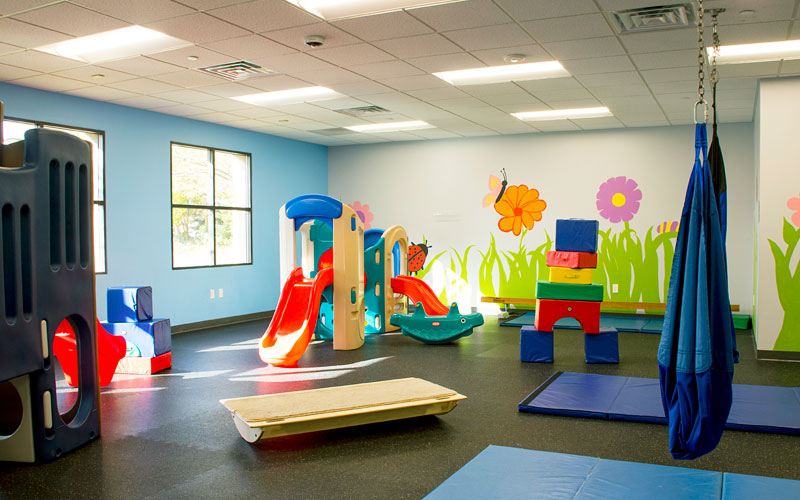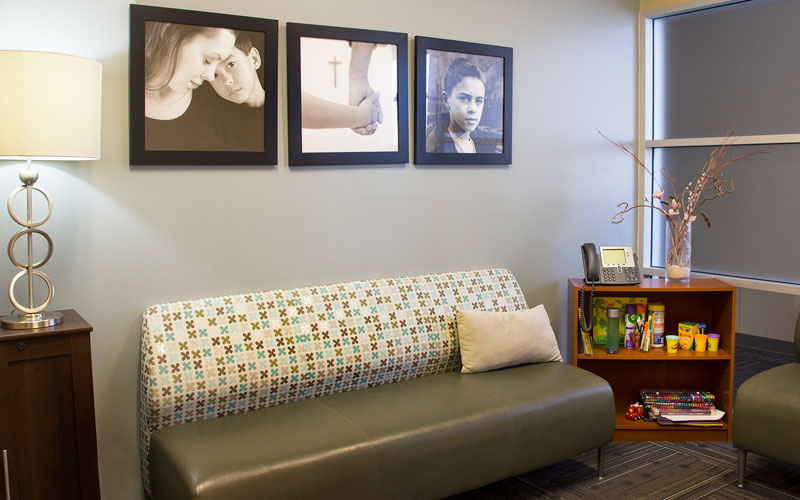Wedgwood Christian Services Finds New Ways to Meet Needs During the Pandemic
We’ve all seen the medical community creating ways to continue their work during the pandemic – procedures and protocol that have obviously changed the way medicine is practiced in order to be as safe as possible.
What hasn’t been as obvious is how mental health services have adapted during the pandemic.
The great challenge is to meet the needs of people often in delicate mental states who rely on the comfort and familiarity of meeting with their therapist. Due to the pandemic, however, mental health services have had to create new ways of connecting with their clients while also handling a whole new wave of people who need them.
Wedgwood Christian Services has found a pandemic-safe, hybrid approach to serving patients and is preparing for more patients to seek them out as the affects of the pandemic continue to spread.

Pandemic, Social Unrest is Widely Affecting Mental Health
A mental health crisis is upon us.
“With the ongoing pandemic, plus the social unrest, we feel there is a mental health tsunami looming,” said Dan Gowdy, Wedgwood president and CEO.
“One of the things that most experts in trauma tell us, particularly those who serve our soldiers, is that the full effects of the trauma are not really fully realized until after the trauma has subsided. We feel like this is going to affect us for a year or more.”
Dan said Wedgwood is looking toward the future of mental health services and what needs to be built up and prioritized.
“We need to be thinking about the things that are valued in our community, and I think some of the things we need to value are our mental health services, our therapists, and those individuals that are going to be keeping us well and healthy.”
Wedgwood Sees a Rise in New Patients
Dan said Wedgwood has a waiting list in some of the nine counties they serve. “Teletherapy” services – the use of video conferencing software, however, has allowed them to use therapists interchangeably in different counties to meet the needs. He said opioid substance abuse and youth in crisis are the two concerns that are on the rise.
“This pandemic is wreaking havoc on young hearts and minds,” he said.
He said the youth coming to them now has a higher level of acuity and more difficult situations involving abuse, neglect, and mental disorders than they have seen in the past. The supervisor in Wedgwood’s human trafficking program has told him she is seeing the toughest cases since the program began in 2012.

Some Patients Prefer Counseling Sessions Online
Interestingly for some, teletherapy has allowed counseling to be a more comfortable and beneficial scenario.
“Not having the individual in the room with them has allowed some breakthroughs that we haven’t seen in certain individuals. It’s not for everyone, but one individual said it’s easier for me to tell you about my trauma when you’re not in the same room as me,” Dan said.
Just like getting used to wearing masks and standing 6 feet apart, people are adjusting to communicating through computers and phones. Dan said he thinks it may be easier for younger clients to adjust to teletherapy because using technology is second nature to them.
“We have a generation that’s grown up with this, and it doesn’t seem abnormal. They share everything online. It gives us another opportunity to connect with that generation where they are and how they prefer to communicate,” Dan said.
“Teletherapy” Helps Patients Connect with Therapists, Provides Flexibility
Since in-person interactions are being held to a minimum around the globe, Wedgwood has adapted how they meet with patients. By using teletherapy they have not only been able to continue to hold therapy sessions, but now praise and see great value in the flexibility this technology has brought.
Dan said the teletherapy format has expanded their ability to reach and help patients. Flexible meeting times and being able to maximize the time therapists spend with patients have changed services tremendously.
“Telehealth is allowing us to share therapists regionally. So we’re able to maximize our therapists that might be in one county serving another county.”
Dan said clients now have an easier time connecting with their therapist and have more opportunities for peer support groups using online tools.
Therapists Are Finding New Ways to Connect With Their Patients During the Pandemic
While teleconferencing technology isn’t new, it’s now being used in ways that were never considered – a necessity is the mother of invention type of scenario.
“With some of these technologies, we’ve known that they were there, we just needed to be pushed. When everything else was shut down, we could still be there for those we serve. We were still there. That was critical.”
Therapists have had to add different skills to go along with counseling that they haven’t had to in the past. Honing computer skills and using tools that may be new to them are now a must.
“Some of our clinicians are using selfie sticks when meeting with a client to offer a perspective that they can both be looking at the same time together. Just a way to keep it fresh and keep it fun and interesting,” Dan said.
“I’m really proud of the team. They’re just making it work.”

What if my Kid Doesn’t Respond to Teletherapy Appointments? – Wedgwood has Options for Them, Too.
There are barriers to teletherapy. Some individuals may have difficulty using a phone or computer for therapy, or they may not be able to find an appropriate location where they can have a telehealth session.
In spite of these issues, the teletherapy model is here to stay, even post-pandemic, Dan said.
“We might have a hybrid approach going forward. We might take the best of both worlds, specific to the individual needs,” he said.
Dan said Wedgwood offers exceptions for in-person sessions with established clients when there is a clinical rationale for services being more effective in-person. All safety protocols, including symptom screening and all participants wearing masks during the session, are in place.
Kids in Crisis – Wedgwood Therapists Work Hard to Make Online Therapy Engaging and Productive
As many parents can imagine, meaningful online therapy sessions can be difficult for some patients, especially young children.
Dr. Elizabeth Raese, Wedgwood associate director of Community Services said therapists have many creative ways to effectively engage a young, resistant patient.
Examples include:
- Sharing videos (for example, trauma focused cognitive behavioral therapy uses a video of Elmo doing “belly breathing” with very young children to help teach this as a calming skill)
- Engaging children in games (there are links to virtual games, like Connect 4, that therapist and the child can play together as they talk, as well as specific psychoeducational online games that can be played together that teach skills regarding identifying and regulating emotions)
- Utilizing activities and challenges (therapists have used a scavenger hunt in session where the child gathers objects from their home, such as an object that soothes them, an object that is related to an important story from their life, etc.).
- Incorporating movement (one therapist has done mindful movements and yoga with child clients).
- Partnering with parents to have supplies on-hand for sessions (such as Play-Doh, art supplies, or bubbles). The therapist then engages the child in art, emotional expression, and coping activities with the materials.
“Therapists also tap into the unique talents and interests of each child and create engaging ideas that are individualized to fit these,” Elizabeth said.
“We consider it our responsibility as therapists to make teletherapy as engaging as it can be.”
Even still, Elizabeth agreed with Dan that there still may be some situations when meeting in-person is most effective.
Teletherapy Makes it Easier to Become New Patient
A skilled therapist to engage with an individual is the key to good mental health services, and teletherapy is useful for making that first connection easily and efficiently, Dan said.
“It’s about staying in therapy. There’s a strong correlation to good outcomes for the individual in recovery if they stay connected to their therapist.”
Wedgwood is Here for Families
The stress of attempting to do normal things while trying to stay healthy has taken a toll on people’s mental health. Intact families without previous histories of abuse or mental illness now have issues cropping up that need to be addressed.
Dan said parents should research and recognize the symptoms of trauma and depression within their children and their own selves. If you think your situation is something you are incapable of solving on your own, reach out and explore the resources around you.
Keeping families strong is key for our communities to make it through the pandemic mentally healthy, and Wedgwood has the resources to help families in a variety of ways.
“Many people think of Wedgwood as only for youth and adolescents. While that is our core, in order to serve the youth better, we need to also serve the families as well,” Dan said.
“This is what we do. Wedgwood has been providing grace-filled care to families, mental, emotional, behavioral challenges for 60 years. It’s really a blessing to be a part of that legacy. We’re glad to be here.”
FEATURED PARTNER

(616) 942-2110

